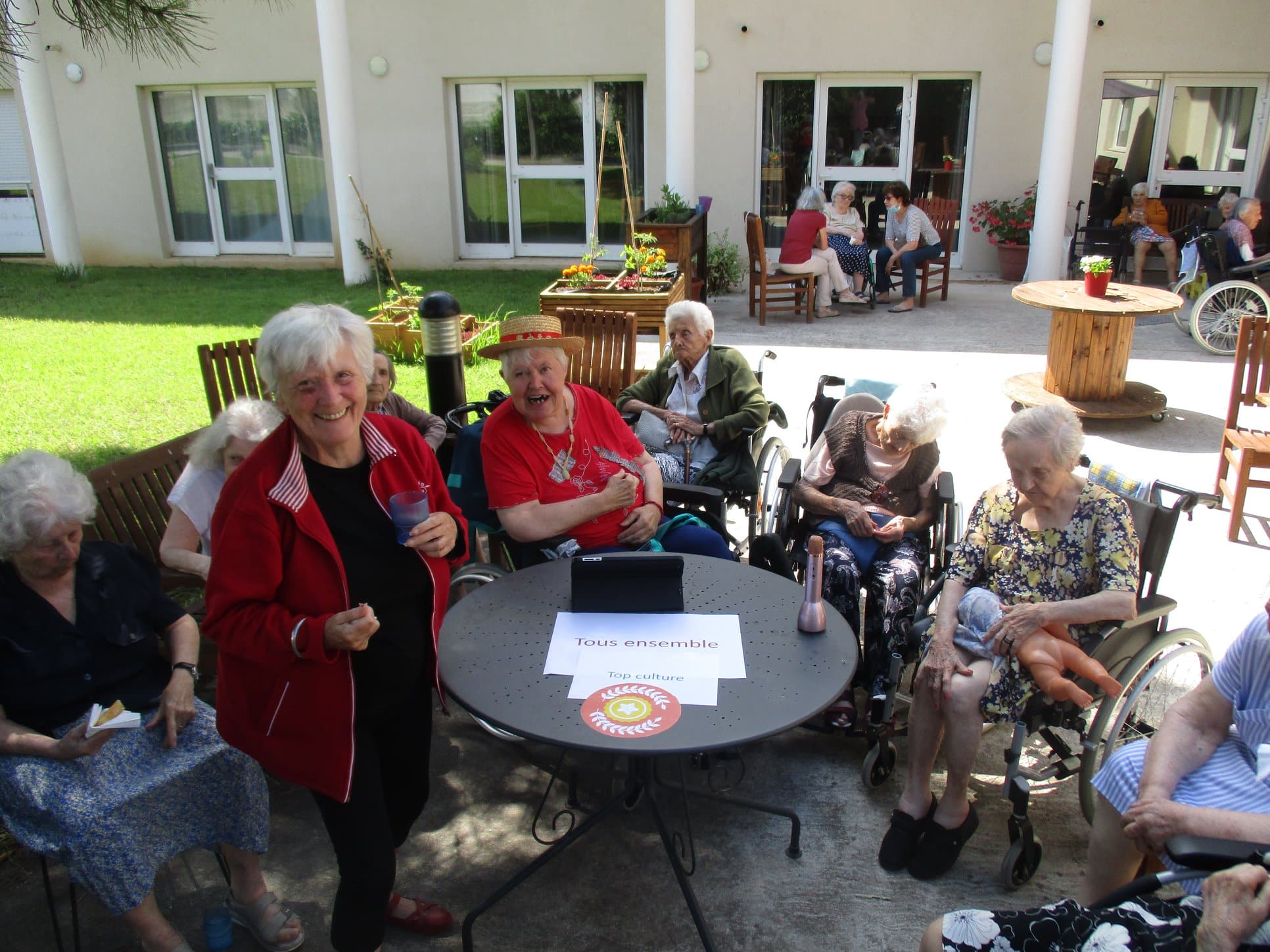As a home care aide, it is essential to create a bond with the seniors you accompany. Seniors may be isolated and need companionship and emotional support, in addition to practical help. To connect with seniors, it is important to show empathy, be patient and treat them with respect.
One way to connect is to engage seniors in activities they enjoy. For example, if a senior is passionate about gardening, you can help them plan and grow a small garden in their backyard. You can also play board games with them, watch movies or TV shows together, or just talk about their memories and past experiences. It is important to show interest in their interests and encourage them to share their passions with you.
How do you show empathy and respect to seniors?
When working as a home health aide for seniors, it is essential to show empathy and respect for them. Seniors may have different needs than other age groups and it is important to take this into account. This may mean being patient, listening and compassionate, and taking into account their individual needs and preferences.
Attentive
It is important to listen carefully to seniors and allow them to express their needs and preferences. Seniors often have rich and varied life experiences, and it is important to respect them and give them the opportunity to share their stories and experiences. By listening, you can learn more about their preferences and the activities they enjoy, which can help you better support them.
Patient and understanding
You have to be patient and understanding with seniors. Seniors may need more time to complete daily tasks, and it is important not to rush and allow them to work at their own pace. It is also important not to judge or criticize their choices and decisions, even if they seem different from our own.

Open-minded
Finally, it is important to respect seniors as unique individuals with their own needs and preferences. This means not imposing our own ideas about what is best for them, but rather working with them to find solutions that suit their individual needs and preferences. For example, if a senior prefers a vegetarian diet, it is important to respect that choice and find meal options that meet their dietary needs.
Showing empathy and respect for seniors is essential to building a relationship of trust and mutual respect as a home care aide. By listening carefully, being patient and understanding, and respecting the individual needs and preferences of seniors, you can create a positive and personalized care experience for the people you care for.
How do we engage seniors in activities they enjoy?
When working as a home health aide for seniors, it is important to engage seniors in activities they enjoy to promote their mental and emotional well-being. Activities can vary depending on the interests and abilities of each senior, so it is important to take the time to get to know them individually and tailor activities accordingly.
Pay attention
First of all, it is important to ask the seniors questions to find out their interests. For example, you can ask if they like to cook, play board games, read books, watch movies or do crafts. By allowing them to choose activities they enjoy, you can help them feel valued and empowered in their own lives.
Then you can search for activities that match their interests. For example, if a senior enjoys cooking, you can look for simple recipes to make together. If a senior loves board games, you can look for games that are appropriate for their skill level. If a senior enjoys crafts, you can arrange for arts and crafts or painting sessions.
Adapting activities
Activities must be adapted to the physical and cognitive abilities of seniors. For example, if a senior has motor difficulties, you can offer activities that do not require a lot of physical movement, such as board games or art activities. If a senior has memory problems, you can offer memory games or activities that stimulate cognition.
Also be patient and flexible when engaging seniors in activities. Some activities may take longer than expected or require adjustments along the way. It is important to take the time to understand the individual needs of each senior and work with them to find activities that help them feel engaged and fulfilled.
Ultimately, engaging seniors in activities they enjoy is an important way to promote their emotional and mental well-being. By asking questions, seeking out suitable activities, and being patient and flexible, you can help seniors feel valued and involved in their own lives, which can improve their overall quality of life.

How can we offer emotional support to seniors?
Providing emotional support to seniors is crucial to their mental well-being and overall quality of life. As a home care aide, it is important to take into account the emotional needs of the seniors you care for and to listen to their concerns.
Encourage
It is important to offer them positive encouragement. For example, you can compliment their appearance, their ability to perform tasks or their talent in a particular area. Encouragement can help boost their self-esteem and improve their mood.
Meditation
The practice of meditation or relaxation can also be beneficial for seniors. Meditation can help calm the mind and reduce stress, which can have a positive impact on their mental health. You can offer them guided meditation sessions or breathing exercises to help them relax.
Activities can be a source of fun and meaning, which can help improve their mood and emotional well-being. You can help them find activities they enjoy and encourage them to pursue their passions.
For example, if a senior enjoys playing cards, you can play with them regularly or encourage them to play with other members of the community. If a senior loves to read, you can suggest books or magazines that might interest him or her. If a senior enjoys gardening, you can help them create a small garden on their balcony or in their yard.
Providing emotional support to seniors is essential to their mental well-being and overall quality of life. By listening, offering positive encouragement, encouraging activities they enjoy and offering relaxation techniques, you can help improve their mood and build their self-esteem.

How should we communicate effectively and what are the limits to respect towards seniors?
Communicating effectively with seniors is essential for a relationship of trust and mutual understanding. However, it is important to respect certain boundaries to ensure that communication is respectful and appropriate.
Clear and concise communication
To begin, it is important to be clear and concise in your communication. Seniors may have difficulty hearing or understanding, so it is important to speak clearly and avoid technical terms or jargon. It is also recommended to speak slowly so that seniors can follow the conversation and ask questions if they do not understand.
It is important to use respectful language and not to infantilize seniors. Seniors have accumulated a wealth of knowledge and experience throughout their lives, so it is important to treat them with respect and dignity. Avoid treating them like children or talking down to them.
The confidentiality and privacy of seniors must be respected. Conversations between the home health aide and seniors should be confidential, and information shared should be kept private. Seniors have a right to privacy, so it is important to respect their autonomy and their right to make their own decisions.
The limits
However, there are limitations to communicating with seniors. For example, it is important not to force them to discuss topics they do not want to discuss. Seniors may have sensitive issues that they do not wish to discuss, so it is important to respect their decision and not force them to talk about them.
They should not be made to feel like a burden or a burden. Seniors may already feel vulnerable and dependent, so it is important to reassure them and make them feel valued and respected.
To illustrate this, let’s say you are working with a senior citizen who has difficulty hearing. Instead of raising your voice or speaking loudly, you can speak slowly and clearly using gestures to accompany your words. Similarly, if a senior does not want to discuss a particular topic, you can respect his or her decision and offer to talk about another topic of interest.
In conclusion, communicating effectively with seniors is essential for a relationship of trust and mutual understanding. It is important to be clear and concise, use respectful language, respect the confidentiality and privacy of seniors, and respect their boundaries. By respecting these boundaries, you can help build trust and mutual respect in your relationship with seniors.
An application adapted for seniors: SCARLETT
Scarlett is an application with more than 30 fun games adapted to seniors with cognitive frailties. The games are simple to allow the person to train at his or her own pace, without being challenged.
Scarlett can be used for individual work for personalized cognitive training, or it can be used for group activities. In this case, the person can interact with peers and maintain good relationships.
The games are designed for seniors, so the images, sounds, questions and generally all the resources are related to the youth of the seniors. This allows the person to work on their memories, to talk about themselves and to share their experience with others.

Plus, after 20 minutes of play, the SCARLETT app stops to ask your residents how they are feeling. They can choose between 6 moods, positive or negative. This allows seniors to express themselves and share their moods in a safe environment.
Discovering the mood of your residents helps you adapt to their needs. You can find out what they like and what they don’t like. Moreover, thanks to SCARLETT you can quickly discover if a senior is sad or angry and therefore be able to quickly accompany him to improve his mood.
Other articles that might interest you:
The Role of Cognitive Apps in Speech Therapy for Alzheimer’s Patients
Alzheimer’s disease is a progressive neurological disorder that primarily affects memory, thinking, and behavior. As...
Memory Apps for Alzheimer’s: Enhancing Recall in Speech Therapy Sessions
Alzheimer's disease is a progressive neurological disorder that primarily affects memory, thinking, and behavior. As...
Cognitive Rehabilitation Apps for Speech Therapy with Alzheimer’s Patients
In recent years, the landscape of cognitive rehabilitation has evolved significantly, largely due to the advent of...






